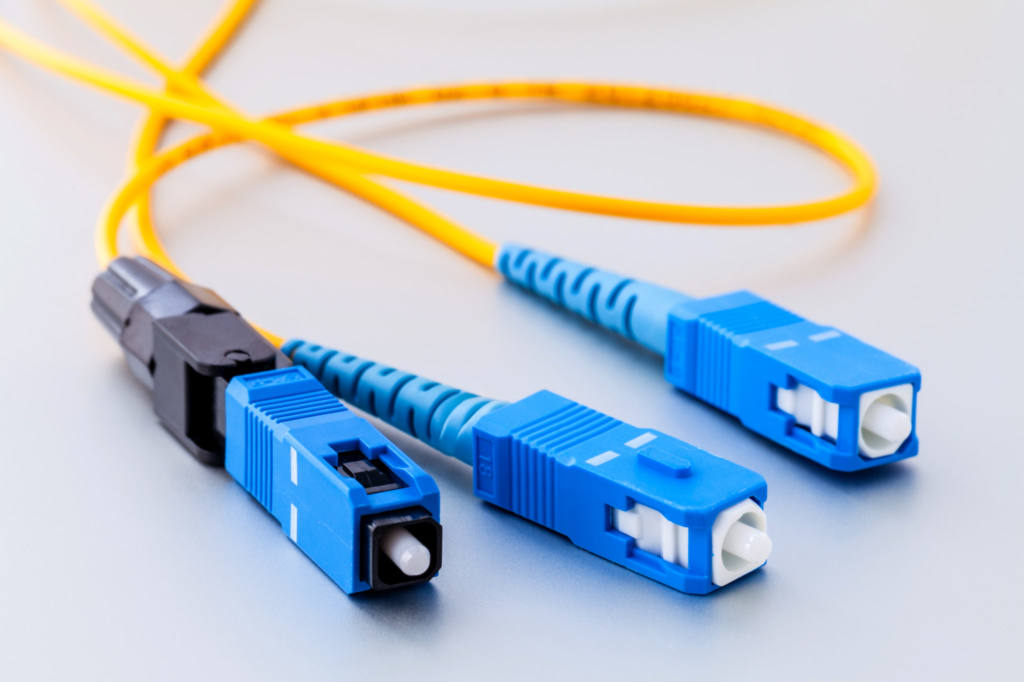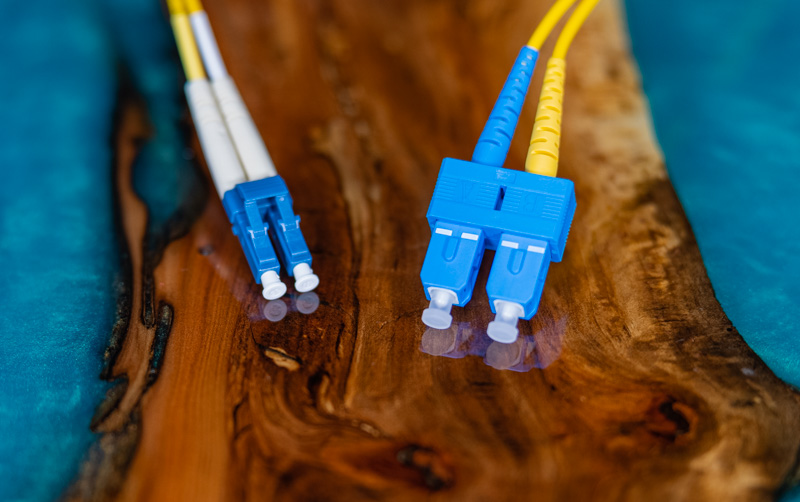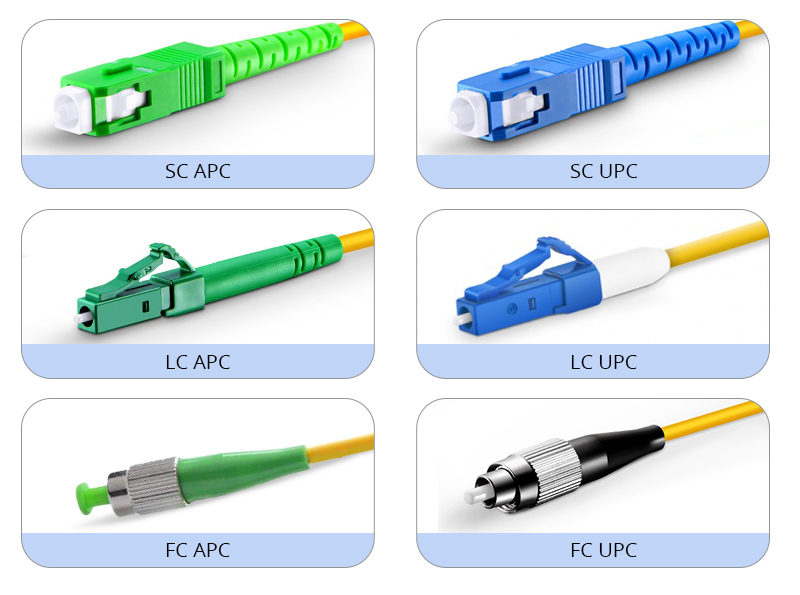Casual Tips About What Is The Difference Between LC Fiber And SC

Comparing SC And LC Fibre Optic Connectors Blog ITel Networks Inc.
LC Fiber vs. SC Fiber
1. A Quick Look at the Fiber Optic World
So, you're diving into the world of fiber optics, huh? That's fantastic! It's a realm of lightning-fast data transmission and surprisingly small components. But then you stumble upon "LC" and "SC" fibers, and suddenly, it feels like you're learning a new language. Don't worry, it's not as complicated as it sounds. Think of them like different types of puzzle pieces; they both achieve the same goal but in slightly different ways. This article will break down the differences in a way that even your grandma could understand. No jargon overload, I promise!
Imagine fiber optic cables as tiny highways for light. Data travels along these highways as pulses of light, and the connectors are the on-ramps and off-ramps. LC and SC are just two common types of these connectors. Understanding their differences can help you choose the right one for your specific needs, whether you're setting up a home network or building a large-scale data center. It's all about picking the right tools for the job, right? Think of it like choosing between a Phillips head and a flathead screwdriver.
We will delve into the core characteristics of each type — their size, ease of use, performance, and typical applications. By the end, youll be able to confidently distinguish between LC and SC fibers and make informed decisions about which one best suits your projects. Well even throw in some relatable analogies to help solidify your understanding. Consider it your handy guide to navigating the world of fiber optic connectors.
And honestly, who doesnt love a good analogy? It's way more fun than dry technical specs, right? So, buckle up, grab a cup of coffee (or tea, if that's your thing), and lets explore the fascinating world of LC and SC fibers together. Well make sure its an enjoyable ride. This isn't going to be a snoozefest, I assure you!

Size Matters
2. Space-Saving vs. Traditional Design
One of the most immediately noticeable differences between LC and SC connectors is their size. LC connectors are significantly smaller than SC connectors. This might not seem like a big deal, but in high-density environments like data centers where space is at a premium, that size difference can be a game-changer. Think of it like comparing a compact car to a full-size SUV. Both will get you from point A to point B, but one is a lot easier to park in a crowded city.
The smaller footprint of the LC connector allows for a higher port density in patch panels and equipment. This means you can pack more connections into the same amount of space, which is essential for maximizing efficiency and reducing infrastructure costs. For example, you can typically fit twice as many LC connectors as SC connectors in the same space. Thats a pretty significant saving!
SC connectors, on the other hand, are larger and more robust. This can be an advantage in situations where durability and ease of handling are more important than space savings. Think of it like comparing a sturdy, old-fashioned tool to a modern, lightweight one. The older tool might be bulkier, but it's built to last. SC connectors are often preferred in environments where connections are frequently made and broken because their larger size makes them easier to grip and manipulate.
Ultimately, the choice between LC and SC based on size depends on the specific needs of your application. If you're dealing with limited space, LC is the clear winner. If you prioritize ease of use and durability, SC might be a better choice. Its all about finding the right balance between size, performance, and practicality. It's like choosing the right size suitcase for your trip — you want something that's big enough to hold everything you need, but not so big that it's a pain to carry around.

Lock and Load
3. The Click-and-Secure Mechanism
The way these connectors lock into place also differs. SC connectors use a simple push-pull locking mechanism. You just push the connector in until it clicks, and pull it out to disconnect. It's straightforward and reliable, making it easy for even a newbie to handle. Think of it like using a basic ballpoint pen — click to extend, click to retract.
LC connectors, in contrast, typically use a latch-based locking mechanism, similar to an RJ45 connector (the one you probably use for your Ethernet cable). This latch provides a more secure connection and prevents accidental disconnections. However, it can be a bit fiddlier to use, especially in tight spaces. Imagine it like opening a childproof medicine bottle — it's more secure, but requires a little more effort.
This difference in locking mechanisms can influence the choice between LC and SC based on the environment and frequency of connections. In environments where connections are frequently changed or where accidental disconnections could be problematic, the more secure latching mechanism of the LC connector is often preferred. In other situations, the simplicity of the push-pull mechanism of the SC connector might be more appealing. Simplicity can be a beautiful thing, especially when youre working under pressure!
Also, consider the type of equipment youre connecting to. Some devices might only support one type of connector, so your choice might be dictated by compatibility. Always check the specifications of your equipment before making a decision. It's like buying a phone charger — you need to make sure it's compatible with your phone, otherwise, it's useless!

Performance and Applications
4. Matching the Connector to the Job
From a performance perspective, both LC and SC connectors are capable of supporting high-speed data transmission. The choice between them often comes down to the specific application and the requirements for port density and ease of use. LC connectors are commonly used in high-density environments such as data centers, where their smaller size allows for more connections per unit of space. They are also frequently used in transceiver modules, where their compact design is advantageous. Think of data centers as bustling cities, and LC connectors as the space-saving smart cars that navigate them efficiently.
SC connectors, on the other hand, are widely used in telecommunications and networking equipment, where their robust design and easy-to-use push-pull mechanism are valued. They are also often found in older installations, as they were one of the first standardized fiber optic connectors. Its like finding a classic car thats still running strong — SC connectors have stood the test of time.
Another factor to consider is the type of fiber being used. Both LC and SC connectors can be used with single-mode and multi-mode fiber. However, it's important to ensure that the connector is properly matched to the fiber type to ensure optimal performance. Using the wrong connector can lead to signal loss and degraded performance. It's like putting the wrong kind of fuel in your car — it might run, but it won't run well.
In summary, LC connectors are generally preferred for high-density applications and transceiver modules, while SC connectors are favored for their robustness and ease of use in telecommunications and networking equipment. But always consider the specific requirements of your application and choose the connector that best meets those needs. Dont just pick one because it looks cool — choose the one that will actually get the job done!
Making the Right Choice
5. Thinking Through Your Needs
Choosing between LC and SC fiber connectors isnt just about technical specifications; its about considering your real-world needs. What kind of environment will the connectors be used in? How often will connections be made and broken? What are your space constraints? Answering these questions can help you narrow down your options and make the best decision.
If youre setting up a home network, for example, you might not need the high density of LC connectors. SC connectors might be a more practical choice due to their ease of use and durability. But if you're building a data center with limited space, LC connectors are probably the way to go. Think about it like choosing between a pickup truck and a minivan. Both are vehicles, but they're designed for different purposes.
Cost is another factor to consider. Generally, LC connectors tend to be slightly more expensive than SC connectors. This is due to their more complex design and the manufacturing processes involved. However, the cost difference is usually not significant enough to be a major deciding factor. But hey, every little bit counts, right? Especially when you're on a budget.
Finally, don't forget to factor in future-proofing. While SC connectors are widely used in existing installations, LC connectors are becoming increasingly popular due to their advantages in high-density environments. Choosing LC connectors might be a good investment for the future, even if you don't need the high density right now. Its like buying a slightly bigger hard drive than you currently need — it gives you room to grow. So, weigh all the factors, do your research, and choose wisely. Your network (and your wallet) will thank you for it.

Fiber FAQs
6. Quick Answers to Common Queries
Still have a few lingering questions? No problem! Here are some frequently asked questions about LC and SC fiber connectors to help clear things up.
7. Q
A: Generally, no, you can't directly connect an LC connector to an SC port or vice versa without using a special adapter. These adapters are designed to bridge the gap between the two different connector types, allowing you to connect devices with incompatible ports. However, it's always best to use the correct connector type whenever possible to avoid potential performance issues. Think of it like trying to plug a European appliance into an American outlet — you need an adapter!
8. Q
A: Not necessarily. While LC connectors offer advantages in high-density environments, SC connectors are often preferred for their ease of use and robustness. The best choice depends on the specific application and your individual needs. Theres no one-size-fits-all solution, so consider your options carefully.
9. Q
A: Cleaning fiber connectors is crucial for maintaining optimal performance. Use a fiber optic cleaning tool or a lint-free wipe and isopropyl alcohol to gently clean the connector end-face. Avoid touching the connector end-face with your fingers, as this can contaminate it. Dirty connectors can cause signal loss and degraded performance. Its like keeping your glasses clean — you need to be able to see clearly!